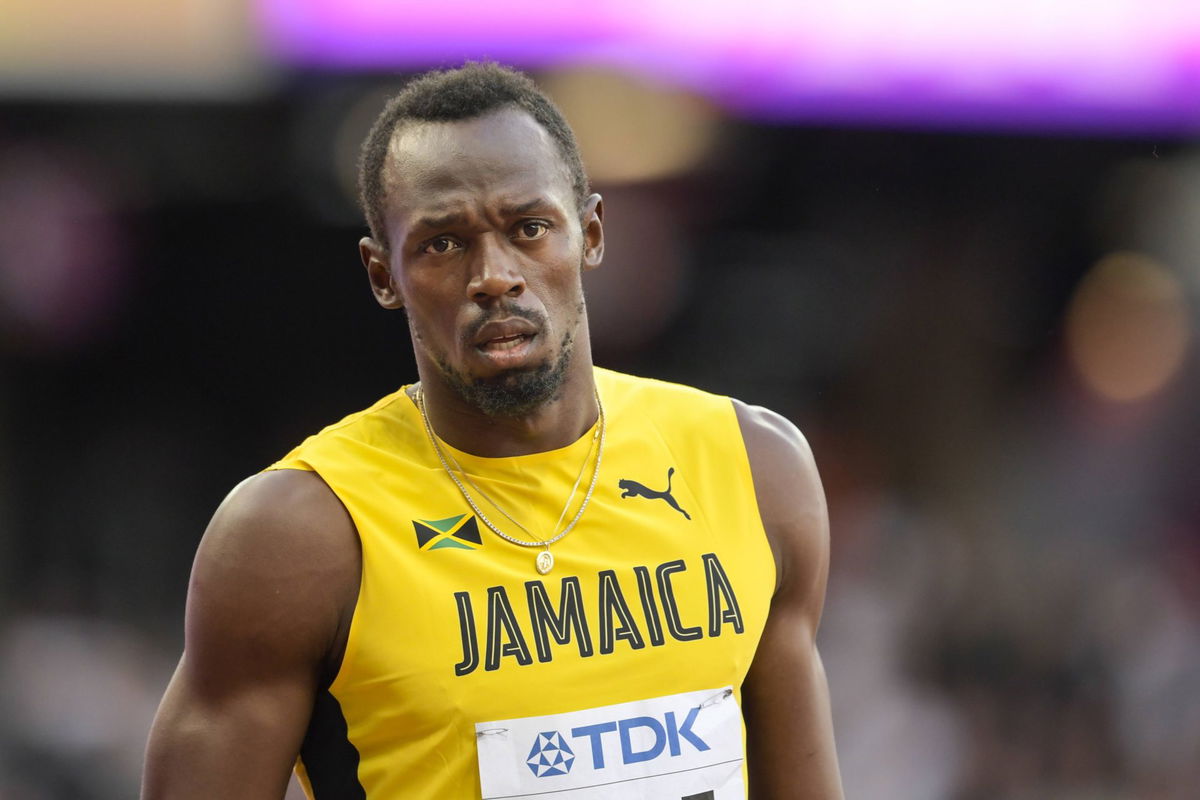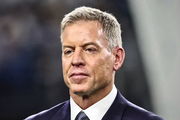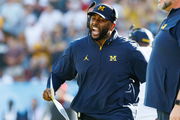

“World Athletics introduces prize money for Olympic gold medalists at Paris 2024.” With this landmark decision on April 10, all 48 track and field event champions are set to receive prize money for the first time in history. With $50,000 on the line and opportunities to win that amount more than once, Usain Bolt had a hilarious reaction to this development.
Watch What’s Trending Now!
“Any retroactive payment 😉,” tweeted Bolt. As someone who’s won 6 individual and 2 4x100m relay golds, this ruling would effectively add $325,000 to his career prize money, which, per Forbes, is $1 million. And while there’s no doubt that retroactive payment would add to his ~$100 million net worth, there’s one partnership that helped build the image of “the fastest man alive”: Puma. But as it turns out, the company didn’t always have the belief it now has in Bolt.
ADVERTISEMENT
Puma’s risky bet on Usain Bolt’s stardom
After Bolt’s remarkable 2008 Beijing Olympics campaign and the success that followed, the Jamaican signed the “largest ever” athletics deal with Puma in 2010. The company’s then-CEO, Jochen Zeitz, had said, “Usain has been a tremendous force for the PUMA brand. He embodies the joy, playfulness and irreverence that are the cornerstone of our brand.” That’s what had drawn the company to Bolt in 2003 when he was just a 16-year-old. But his playfulness and nonchalance were precisely what put their partnership in danger.
In a 2013 interview with CNBC Meets, Zeitz revealed Usain Bolt’s underwhelming display at the 2004 Olympics in Athens raised doubts about his commitment to training. “We said, ‘Well, he’s a young guy, but he doesn’t really want to train as hard as he should. He has all the potential but he does get injured. If he doesn’t practice, he’s never going to be great.’”
Top Stories
Update Announced on Josh Allen’s Bills Staying Near Brown University Amid Tragic Incident

2025 Vic PGA Championship: Prize Money, Winner’s Payout & More Explored

Forced to Leave FOX, Cowboys Legend Troy Aikman Says ESPN Is Like ‘U.S. Government’ & Clearly Distinguishes the Two Networks

Michigan Football Receives Disappointing Kenny Dillingham News on Saturday

$250M Michigan Booster Reveals More to Sherrone Moore Saga After Paige Shiver Confirms Police Visit

Army vs Navy: Why is U.S. President Donald Trump Attending the Game?

After becoming the first junior sprinter to run the 200 m in under 20 seconds (19.93s), Bolt entered the Athens Games with confidence. However, due to a leg injury, the then-18-year-old was eliminated in the 200m heats. While that performance didn’t please the Puma management, and they were leaning towards a split, Zeitz’s intuition led him to reverse the decision. “It was only a couple of weeks later that I said, ‘Well, I don’t think that’s a good idea. Let’s just stick with him. I’m sure he can pull it off.’”
ADVERTISEMENT
The CEO believed a coaching overhaul was what the teenager needed, recognizing Bolt’s inherent talent and the potential for greatness if properly nurtured. Zeitz told the board, “‘He’s great [and] has a great personality. He’s a great guy, and if he gets a good coach, he can do miracles. Let’s just stand by him and support him in these difficult times.’”
Forever legend. @usainbolt #ForeverFastest ⚡️ pic.twitter.com/7HxRgvo48I
— PUMA (@PUMA) August 5, 2017
ADVERTISEMENT
The gamble paid off handsomely for Puma. Bolt’s subsequent dominance on the track after joining hands with coach Glen Mills, coupled with his charismatic personality, transformed him into a global icon. At the Beijing Olympics, he broke three world records – 100m, 200m, and the 4x100m (a gold Jamaica was subsequently stripped of). And four years later, he bettered his time in the 100m to 9.63s in London, setting the new Olympic record.
Reflecting on his decision to retain Bolt, Zeitz stated, “I would have certainly bitten myself if we had continued to actually let him go. So [I am] very thankful for that spark of inspiration.” As Puma’s “largest ever” athletic deal was nearing its end in 2013, the German company signed Bolt for a lifetime endorsement deal, reportedly having paid him $10 million a year until he retired in 2017.
It’s no secret that the Puma-Bolt partnership worked wonders for the German sportswear brand. But it’s important to note that it worked just as well for the “fastest man alive.” He said so himself.
ADVERTISEMENT
Bolt wouldn’t have been the legend he is if not for Puma
“It’s been very big this year,” he said. “Usain just broke two world records in a week. The product that we created for him sold out very fast. He is a great boost for us.”ADVERTISEMENT
Per
The Guardian, “The sprinter’s star appeal brought Puma €250m (£217m) in publicity value [in 2008].” Furthermore, Puma outperformed its German rival, Adidas, in the first half of 2009, achieving sales growth of 4%. However, as beneficial as partnering with Bolt was to Puma, the same could be said for the track and field legend.In an interview with
CNBC, Bolt proclaimed, “For me to have grown up with the company to the point where I started being successful and I am the legend that I am today, for me, it’s a great feeling to be a part of that. And to help them build my brand also [has] just been brilliant.”ADVERTISEMENT
ADVERTISEMENT
ADVERTISEMENT
ADVERTISEMENT

